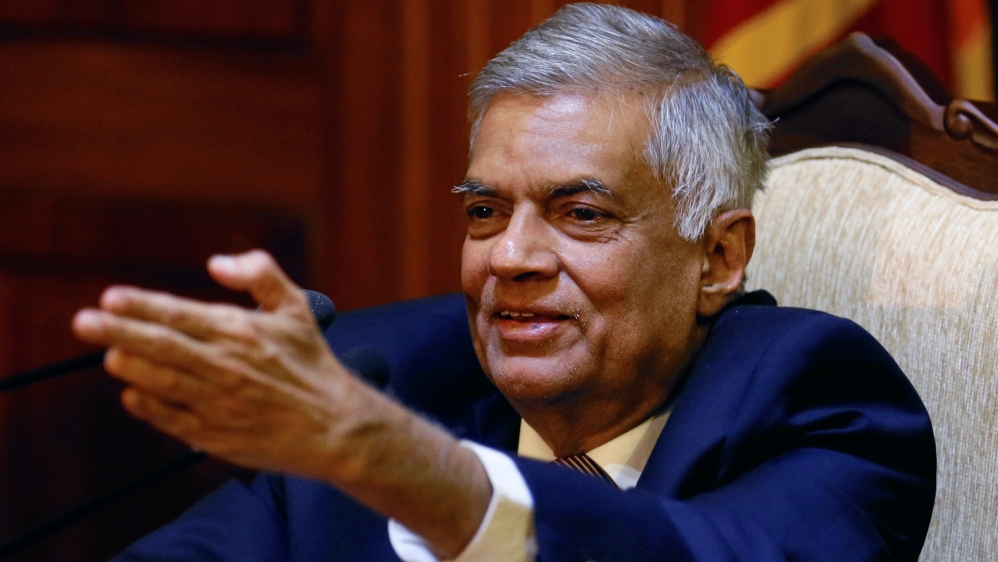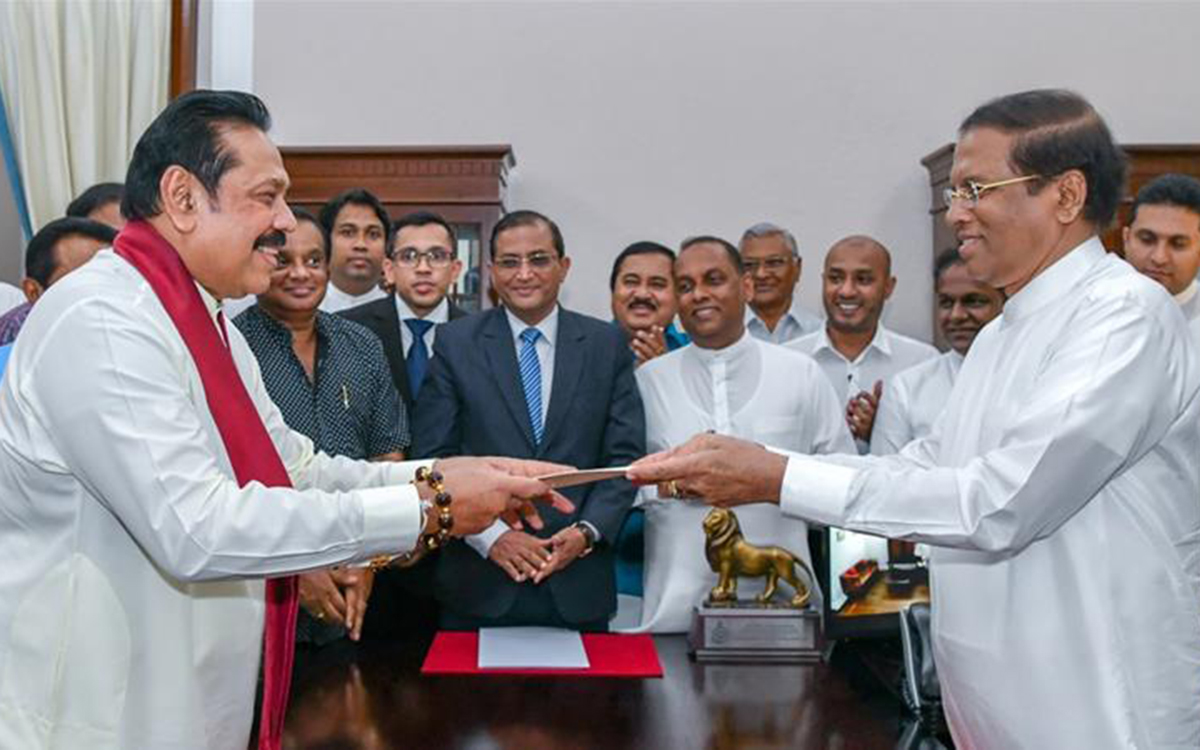Taken from Al Jazeera
The appointment was confirmed in a statement from President Maithripala Sirisena’s office on Friday, but Wickremesinghe later insisted he remained the prime minister.
“I retain the confidence of the house. I am the prime minister and I have the majority,” Wickremesinghe told local media.
“According to the constitution, I’m the prime minister. That [removal] is not legal.”
Sirisena, who was health minister under Rajapaksa from 2010 to 2014, joined forces with Wickremesinghe to defeat the former president in elections in January 2015.
He was elected president largely thanks to the backing of Wickremesinghe’s United National Party (UNP).
‘Instability and uncertainty’
Al Jazeera’s Minelle Fernandez, reporting from Colombo, said Rajapaksa’s shock appointment has brought uncertainty to Sri Lanka amid questions whether the president has the power to dismiss the prime minister.
“There was no inkling that this might happen. It was only after the swearing-in that we started seeing videos and pictures of the ceremony,” she said.
Mangala Samaraweera, the finance minister of the outgoing government, argued that Rajapaksa’s appointment was a violation of the constitution, which was amended in 2015 to curtail the president’s powers.
“This is an anti-democratic coup,” Samaraweera wrote on Twitter.
Ultimately, the question of who remained prime minister was up to parliament, analysts said.
“This has to be resolved on the floor of the parliament,” said Gehan Gunatilleke, a human rights lawyer.
“The important question here is whether the prime minister enjoys the confidence of the parliament,” he told Al Jazeera. “We hope parliament reconvenes as soon as possible.
“Now this happened late on a Friday evening. And there is a sense this was timed so the [Sirisena-bloc] gets a few days before parliament reconvenes to get the required numbers.”
Paikiasothy Saravanamuttu, executive director at the Centre for Policy Alternatives, a Colombo-based think-tank, said Rajapaksa “would not have made the decision if he did not have the numbers”.
“We are in a bit of a grey area at the moment. Until a new government is sworn in, there will be a certain amount of instability and uncertainty,” he told Al Jazeera.
Mahinda Amaraweera, a presidential aide, told The Associated Press news agency that Rajapaksa has the majority needed in the 225-member parliament to run a stable government.
Strained relations
Relations between Sirisena and Wickremesinghe have soured since their parties suffered humiliating losses to Rajapaksa’s party in February’s local council elections.
The two have disagreed over economic policy and day-to-day administration of the government. Last week, they reportedly clashed during a cabinet session over plans to lease a container terminal to neighbouring India.
 |
| Ranil Wickremesinghe said his sacking by Sirisena was unconstitutional [File: Dinuka Liyanawatte/ Reuters] |
Earlier this year, Sirisena reneged on a pledge not to run for re-election, sparking tensions with Wickremesinghe who is believed to have his own presidential ambitions.
Sirisena is also thought to be behind a failed attempt to impeach Wickremesinghe in April when 122 legislators in the 225-member parliament voted to back the now-sacked prime minister.
The ruling coalition has been further strained in recent days by strong criticism from Sirisena and his allies that ministers from Wickremesinghe’s party did not act properly in investigating an alleged assassination plot against the president and former Defence Secretary Gotabaya Rajapaksa, the new prime minister’s younger brother.
Rajapaksa, who served as president from 2005 to 2015, put down the decades-old Tamil Tiger separatist struggle in May 2009 through a military assault that killed up to 40,000 ethnic Tamil civilians, according to rights groups.
His government was also accused of corruption and murdering political opponents.
Sirisena had pledged accountability for war atrocities but has faced international criticism for being slow to deliver on justice.
International rights groups have called for the prosecution of both the military and the Tigers, who were notorious for suicide bombings and enlisting child soldiers.
